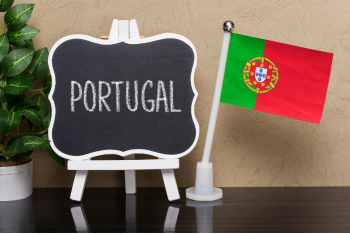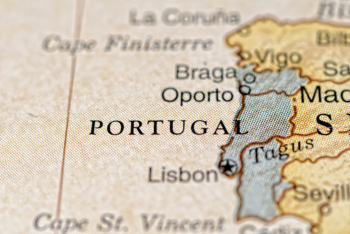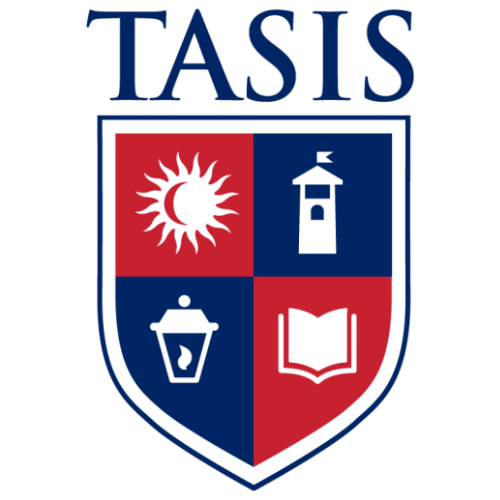by Rebekka Klingshirn, Heidelberg IWC and Education Team Co-Chair
Education plays a vital role in Portugal, and as our Interim Meeting 2024 is taking place in Porto this year, let’s have a look at our host country’s educational system.
The educational system is regulated by the state, i.e., the Ministry of Education and the Ministry for Science, Technology and Higher Education.
 Up to the Carnation Revolution in 1974, education did not receive the attention it should have and even in 2000, only one-tenth of over 30-year-olds in Portugal had an academic degree. The basic literacy rate of the Portuguese population is currently 99.44 percent among 15–24-year-olds. However, only 3.7 million Portuguese workers (who make up 67% of the active working population) completed basic education, according to INE (Portuguese Institute for National Statistics).
Up to the Carnation Revolution in 1974, education did not receive the attention it should have and even in 2000, only one-tenth of over 30-year-olds in Portugal had an academic degree. The basic literacy rate of the Portuguese population is currently 99.44 percent among 15–24-year-olds. However, only 3.7 million Portuguese workers (who make up 67% of the active working population) completed basic education, according to INE (Portuguese Institute for National Statistics).
About 4.6% of the population is considered illiterate, and as so often happens, women are more affected (5.9%) than men (3.1%).
In the 2015 PISA rankings (comparing OECD countries in terms of literacy, math and science knowledge in 15-year-olds), Portugal’s students were ranked above the average of OECD countries in literacy and science skills, but the skills have taken a downward trend (the latest information can be found here). Portugal currently ranks slightly below the OECD average in both mathematics and science.
Education is mandatory for every person up to the age of 18 or the end of year 12, whichever comes first, and can be divided into basic education (Ensino Básico, years 1–9) and secondary education (Ensino Secundário, years 10–12). While basic education focuses on providing students with solid fundamental skills and knowledge across various subjects, such as literacy, numeracy and critical thinking skills, secondary education offers general, vocational or artistic paths that students can choose to pursue. General education prepares students for an academic career, while vocational and artistic tracks offer specialized training and practical skills. Students need to pass all subjects of their study program; some courses require final national exams. A passing grade cannot be lower than 10 out of 20 grade points.
Higher education (Ensino Superior) in Portugal is considered diverse, accessible and affordable, emphasizing accessibility, quality and inclusivity at both universities and polytechnics. But it must also be said that it took the country a lot of hard work to reach a high standard of higher education: Portugal has adopted the Bologna Process since 2006. This European reform process aimed to create a European higher education system that would make it easier to move from one country to another for study or employment, make the European higher education institutions more attractive to non-European students and provide Europe with a broad, high-quality and advanced knowledge base, ensuring the further development of Europe as a stable, peaceful and tolerant community. That being said, Portugal’s higher education rate still remains one of the lowest in the EU.
 Initial professional education and qualification in the labor market (under the regulation of the Ministry of Labor and Social Solidarity through the Institute of Employment and Professional Qualification) is achieved by an apprenticeship system. The apprenticeship courses are part of an initial professional qualification system alternating between the school and the workplace, addressing mainly youngsters aged between 15 and 25 who are not included in the mandatory school system. The qualification process alternates between the professional (where the sociocultural, scientific-technological and practice qualification takes place) and the workplace (where the practice qualification in a work context takes place) and is thus similar to the German vocational apprenticeship educational system.
Initial professional education and qualification in the labor market (under the regulation of the Ministry of Labor and Social Solidarity through the Institute of Employment and Professional Qualification) is achieved by an apprenticeship system. The apprenticeship courses are part of an initial professional qualification system alternating between the school and the workplace, addressing mainly youngsters aged between 15 and 25 who are not included in the mandatory school system. The qualification process alternates between the professional (where the sociocultural, scientific-technological and practice qualification takes place) and the workplace (where the practice qualification in a work context takes place) and is thus similar to the German vocational apprenticeship educational system.
In the mid-2000s, education policy was reorganized, aiming for more choice and better quality in professional technical education. Enhanced and improved technical education programs were implemented in 2007 in an effort to revitalize this sector, which had almost been discontinued after the Carnation Revolution of 1974, when many professional schools were administratively upgraded to higher education technical colleges and others were simply closed. This happened despite those professional schools having been generally regarded as reputable institutions with a record of very high standards in professional education.
Continuing education in Portugal tries to be inspirational for everyone. Classes are diverse in both breadth and depth, encompassing a wide array of subjects and disciplines tailored to everyone’s needs. Learning is flexible and easily accessible as online courses or evening classes, catering to diverse learner preferences using all available technology to facilitate learning. Above all, continuing education tries to nurture the spirit of lifelong learning. It embodies the philosophy that education is not confined to formal settings but permeates every facet of life. Whether individuals seek to acquire new skills, explore new interests, or enhance existing competencies, continuing education provides a platform for personal, professional and societal growth.
Mantenha a calma e continue aprendendo! – Keep calm and carry on learning!
Sources:
The Bologna Process | BMBF (German Federal Ministry of Education and Research)
Assessment in general upper secondary education | Eurydice
Adult education and training – Portugal | Eurydice
Portugal | Factsheets | OECD PISA 2022 results
Education in Portugal | Wikipedia
Images: Canva


